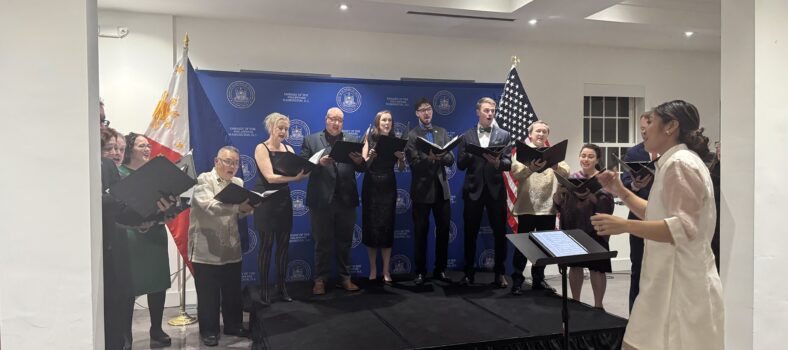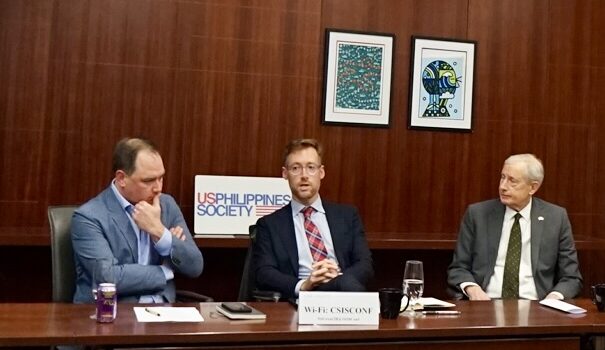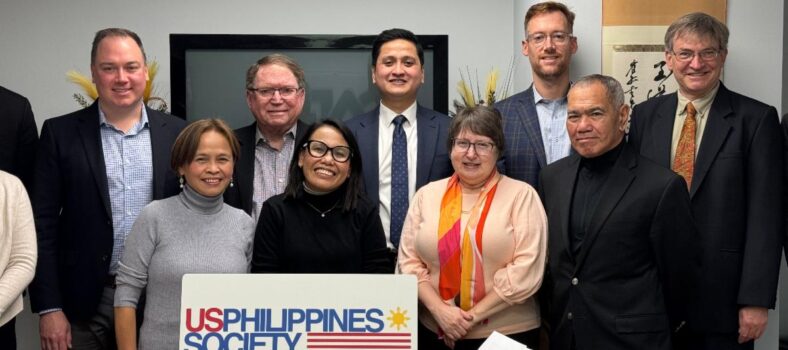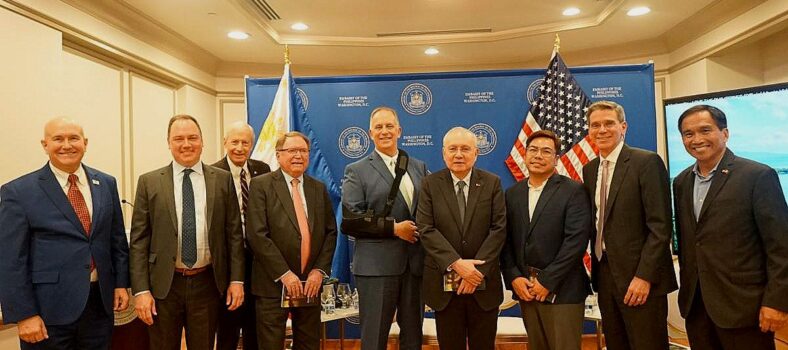U.S.-Philippines-Japan Trilateral Meeting | Maritime Security in the Indo-Pacific and Economic Cooperation

July 10-11, 2025, U.S. Secretary of State Marco Rubio attended the 58th ASEAN Foreign Ministers’ Meeting and Related Meetings in Kuala Lumpur, Malaysia on his first official trip to the Indo-Pacific region. The Secretary’s remarks aimed to reassure ASEAN of America’s long term defense and economic engagement in the region which he described as the “youngest part of the world.” He sought to counter tariff concerns as the U.S. seeks to improve trade imbalances noting that negotiations are ongoing.
Building on the momentum of ongoing U.S.-Japan-Philippines cooperation, Secretary Rubio participated in his first Trilateral Meeting with Philippine Foreign Secretary Theresa Lazaro and Japan Foreign Minister Iwaya Takeshi. The three reaffirmed their commitment to advance a free and open Indo-Pacific and agreed to coordinate “cooperation on maritime security, including through Maritime Cooperative Activities, trilateral military exercises, and capacity building and assistance for the Philippine Coast Guard and other Philippine maritime authorities,” in a July 10 press release by the State department.
Philippine-hosted Balikatan 2025 held in April has evolved in sophistication and scope. Japan became a participant making the U.S.-Philippines bilateral exercise multilateral with other like-minded countries. Just last month, the three countries’ coast guards held a joint training exercise in Kagoshima, Japan.
Discussions on maritime tensions in the East and South China Seas were anchored on the “July 12 South China Sea Arbitral Award, opposition to attempts to unilaterally change the status quo by force and coercion, and confirmed the importance of respecting the rule of law, and underscored the need to uphold freedom of navigation,” Foreign Minister Iwaya stated.
Secretary Lazaro expressed the Philippines appreciation for America’s and Japan’s support for the Philippines position on the South China Sea and the U.S. commitment to the Mutual Defense Treaty.
Secretary Lazaro described the role of the Luzon Economic Corridor (LEC) which connects Subic, Clark, Manila, and Batangas (SCMB) in supporting new growth hubs in other parts of Luzon. The LEC will advance trilateral economic partnership in tandem with security ties. Secretary Lazaro thanked the U.S. for the $ 3.8 million grant providing technical assistance in developing the SCMB Freight Railway.
Secretary Rubio noted the Philippines’ abundance of critical minerals in light of the U.S. interest in diversifying critical mineral supply chains.
The three further agreed to strengthen cooperation on cyber security, civil nuclear energy, capacity building and workforce development, and investments in secure and reliable telecommunications networks.
On July 12, the 9th anniversary of the United Nations Arbitral Tribunal’s decision which is final and legally binding, the US-Philippines Society takes this occasion to point out that the Philippines, which brought the case, the United States and over 25 other countries call for compliance with the principles embedded in the court’s decision. Adherence to the ruling by all South China Sea claimants will foster peace and stability through diplomatic engagement and use of legal processes, aimed at resolving disputes based on international law, ensuring freedom of navigation in one of the world’s most critically important sea lanes, and preserving Philippine sovereign rights as recognized by the U.N. Arbitral Tribunal. China’s coercive maneuvers and inconsistent claims including within Philippines’ Exclusive Economic Zone are illegal under international law.
At a July 10 press briefing in Kuala Lumpur, Secretary Rubio announced that he looks forward to hosting Philippine President Ferdinand R. Marcos, Jr. in Washington in the coming days.




